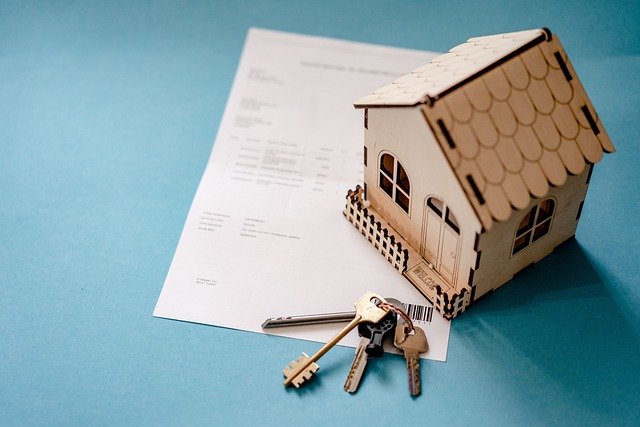A Complete Guide to Private Senior Care: Finding the Perfect Match
Choosing a private caregiver for a senior loved one is an important decision that can impact both their quality of life and your peace of mind. With a wide range of options available — from part-time home aides to full-time live-in caregivers — it’s essential to understand the skills, experience, and personality traits that make a caregiver the right fit. This guide will walk you through the steps of evaluating potential caregivers, asking the right questions, and ensuring that your loved one receives safe, compassionate, and reliable care at home. By taking a structured approach, families can make informed decisions that balance comfort, trust, and cost effectively.

Choosing the right care for an aging family member is one of the most significant decisions you’ll make. Private senior care encompasses a range of services designed to help elderly individuals maintain their independence while receiving the support they need in familiar surroundings. This guide explores the essential aspects of private senior care, from understanding different service types to navigating costs and finding qualified professionals.
Understanding Different Types of Private Senior Care
Private senior care comes in various forms, each designed to meet specific needs. Non-medical home care includes assistance with daily activities such as bathing, dressing, meal preparation, medication reminders, and companionship. Medical home care involves skilled nursing services, physical therapy, wound care, and other health-related tasks performed by licensed professionals. The level of care required depends on your loved one’s health status, mobility, and cognitive function. Some seniors need only a few hours of help per week, while others benefit from around-the-clock support. Assessing these needs carefully helps determine which type of care arrangement will work best.
Hiring a Private Caregiver for Elderly at Home
When you decide to hire a private caregiver for elderly at home, you have two main pathways: working directly with an independent caregiver or going through an agency. Hiring independently can offer more flexibility and potentially lower costs, but it also means you’re responsible for background checks, tax withholding, insurance, and finding backup coverage. You’ll need to verify references, confirm certifications, and ensure proper legal compliance. Many families find this administrative burden challenging. Alternatively, working with established agencies provides pre-screened, trained caregivers, handles payroll and insurance, and offers replacement caregivers when needed. While agencies typically charge more, they provide peace of mind and professional oversight.
Exploring Live-In Caregiver Services for Seniors
Live-in caregiver services for seniors provide continuous presence and support, ideal for those who need frequent assistance or have safety concerns. A live-in caregiver resides in the home, typically working five or six days per week with scheduled breaks. This arrangement offers consistency, as the senior develops a relationship with one primary caregiver who becomes familiar with their routines, preferences, and medical needs. Live-in care is particularly beneficial for individuals with dementia, mobility limitations, or those recovering from surgery. The caregiver usually has their own sleeping quarters and is available for overnight assistance if needed, though they’re entitled to uninterrupted sleep time according to labor regulations.
Finding Professional Caregivers in the USA
When searching for a professional caregiver for elderly hire in the USA, start by identifying your specific requirements. Consider the level of medical expertise needed, personality compatibility, language preferences, and scheduling needs. Reputable sources for finding caregivers include licensed home care agencies, online caregiver platforms, local senior centers, healthcare providers, and word-of-mouth recommendations. During the selection process, conduct thorough interviews asking about experience, training, approach to challenging situations, and availability. Request and check references carefully. Many states require caregivers to complete specific training and background checks, so verify credentials and certifications. Trust your instincts—the right caregiver should make both you and your loved one feel comfortable and confident.
Understanding Home Care Costs and Provider Options
The cost of private senior care varies significantly based on location, level of care, and whether you hire independently or through an agency. Hourly rates for non-medical home care typically range from $20 to $35 per hour, while skilled nursing care can cost $50 to $100 per hour or more. Live-in care arrangements generally cost between $200 and $400 per day, depending on the caregiver’s qualifications and your location. Urban areas and regions with higher costs of living tend to have higher rates. When comparing providers, consider not just the hourly rate but also what services are included, minimum hour requirements, and additional fees.
| Provider Type | Services Offered | Cost Estimation |
|---|---|---|
| Independent Caregiver | Personal care, companionship, light housekeeping | $18-$28 per hour |
| Local Home Care Agency | Personal care, skilled nursing, therapy services | $25-$40 per hour (non-medical), $50-$100 per hour (skilled) |
| National Home Care Chain | Comprehensive care plans, 24/7 support, care coordination | $28-$45 per hour (non-medical), $60-$110 per hour (skilled) |
| Live-In Care Provider | Round-the-clock presence, personal care, household support | $200-$400 per day |
| Specialized Dementia Care | Memory care, behavioral management, specialized training | $30-$50 per hour or $250-$450 per day (live-in) |
Prices, rates, or cost estimates mentioned in this article are based on the latest available information but may change over time. Independent research is advised before making financial decisions.
Evaluating Quality and Making Your Decision
Quality care goes beyond credentials and costs. Look for caregivers and agencies with strong communication skills, genuine compassion, and flexibility to adapt as needs change. Ask potential providers about their training programs, supervision practices, and how they handle emergencies. Inquire about caregiver retention rates, as high turnover can disrupt care continuity. Many agencies offer trial periods or initial assessments to ensure compatibility. Don’t hesitate to make changes if the arrangement isn’t working—your loved one’s comfort and safety are paramount. Regular check-ins, open communication, and periodic reassessments help ensure the care remains appropriate as circumstances evolve.
Finding the right private senior care requires careful consideration of needs, thorough research, and trust in your judgment. Whether you choose an independent caregiver or work with an established agency, the goal remains the same: providing your loved one with dignified, compassionate care that enhances their quality of life. Take time to explore options, ask questions, and involve your family member in decisions whenever possible. With the right support in place, seniors can age comfortably and safely in the place they call home.




